Catalog
New releases
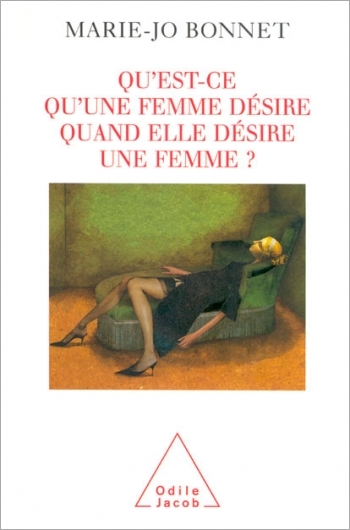
Marie-Jo Bonnet
What Does a Woman Desire when She Desires a Woman?
The desire of women for their own sex is a subject that has been concealed and heavily censored since Antiquity. Yet it has constantly resurfaced throughout history - despite repression, denial and today's feigned indifference - and its existence is a historical and anthropological fact, whatever the dominant opinion may say. Marie-Jo Bonnet argues that lesbianism transgresses social norms and female stereotypes, and breaks with the phallic model and the restricted social role that is assigned to women even today. She sees lesbian desire as a radical instrument of emancipation and offers an original analysis of the women's liberation movement, of recent discussions about homosexuality and, finally, of the persistence of lesbophobia. Desire, regardless of its subject, is always a unique and complex experience, and Bonnet does not ignore this fact. In an original, wide-ranging study of lesbian love through literature, she delves into the work of such major writers of the past as Marguerite Yourcenar, Violette Leduc, Simone de Beauvoir, Djuna Barnes and, surprisingly, Madame de Sévigné, as well as of more recent writers such as Monique Wittig, Anne Garreta and Christine Angot. The author's thesis is that women's desire for their own sex can serve as a tool to empower them to conquer their own space of creativity and liberation. Marie-Jo Bonnet, a writer and historian, is the author of Les Relations Amoureuses Entre Femmes (XVIe-XXe siècle).
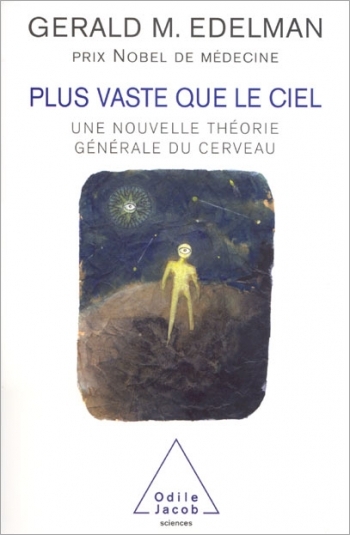
Gerald M. Edelman
Wider than the Sky
The brain is wider than the sky, For, put them side by side, The one the other will include With ease and you beside, wrote the American poet Emily Dickinson in the mid-nineteenth century. The fundamental mechanisms governing mental life are now the subject of scientific study. In this book, Gerald Edelman examines a major aspect of the mind - consciousness. How can the firing of neurons give rise to subjective sensations, thoughts and emotions? How can the disparate domains of mind and body be reconciled? A scientific explanation of consciousness must take into account the causal connections between these two domains. Such a theory must show how the neural bases of consciousness appeared during the evolutionary process and how certain animals developed consciousness. These are some of the key issues that Gerald Edelman examines here. He shows that consciousness cannot be located in a specific area of the brain, because it is a process linked to how the brain functions as a whole, to its wealth of connections and to its great complexity. The brain, he argues, is not a kind of computer. Edelman is regarded as one of the greatest theoreticians of the brain, and his notion of consciousness dominates all discussions on the subject among the international scientific community. This book offers the most accessible version of his theories that is available today. The winner of the 1972 Nobel Prize in Medicine, Gerald Edelman heads the Institute for Neurosciences, in La Jolla, California.
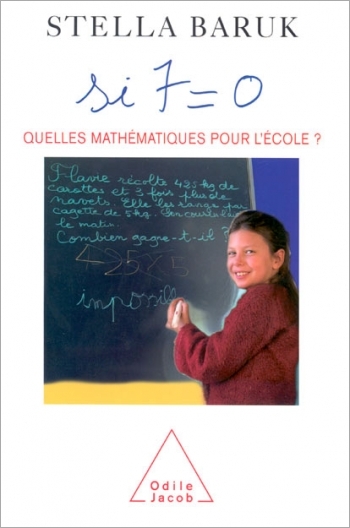
Stella Baruk
Si 7 = 0. Quelles mathématiques pour l'école ?
Stella Baruk is known for her uncompromising criticism of the way mathematics is taught at school. She sees children's frequent aversion to the subject as a clear demonstration of the failure of current methods. Following her earlier book, L'Age du Capitaine, in which she denounced the meaningless mathematical problems that children were burdened with and enjoined to solve, she now addresses the difficulties encountered by the new generation of the captain's children. She has reproduced pages from the exercise books of primary school pupils, with a commentary underlining the confusion created by modern maths in the minds of children who are not yet familiar with mathematics. Her message is clear: the fault lies not in modern maths, but in the fact that the cart has been put before the horse. Modern maths was created to generalise operations and structures that recur in every aspect of mathematics, and modern maths cannot be correctly understood without the full mastery of those operations and structures. Yet, the teaching of mathematics has been turned on its head, with the abstract being taught before the concrete and the general before the specific - with the result that empty formalism is all that is being passed on. Baruk's very precise analyses, illustrated with specific examples, will help parents understand their children's mistakes and difficulties, so that they can help them overcome them. Stella Baruk is a mathematics teacher and pedagogical researcher.
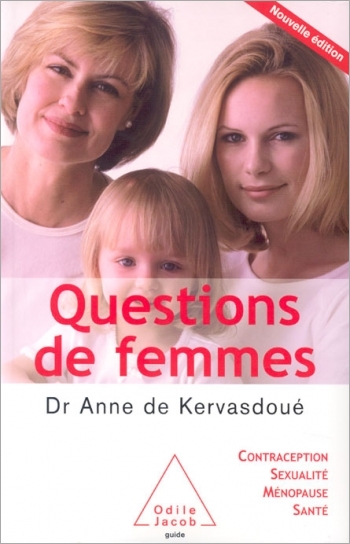
Anne de Kervasdoué
Women's Questions New, revised and enlarged edition
This is the revised and expanded fourth edition of Anne de Kervasdoué's highly successful handbook on women's health, Questions de Femmes. The author, a gynaecologist, answers a large range of questions about the female body, sexuality and the control of fertility. She provides an extensive survey of gynaecological information for each stage of a woman's life, from birth to old age. What type of contraception should be used before the age of twenty, and after forty? How can a woman increase her chances of becoming pregnant when she wishes? What should be done if a woman has one miscarriage after another? How can medicine further sexual fulfilment? What can plastic surgery do for breast enhancement? How does breast cancer develop? What are the effects of AIDS on maternity? What are some of the symptoms of sexually transmitted diseases? Anne de Kervasdoué also offers precise and detailed information about such recent developments as intracytoplasmic sperm injections (ICSI) for the treatment of male sterility, she explains what is the third-generation Pill, and she examines the secondary effects of Hormone Replacement Therapy (HRT). Most of the changes in this new edition concern the treatment of the menopause. Following the recent publication in Britain and the United States of three studies revealing a higher incidence of breast cancer and cardiovascular diseases among women who take hormones, questions are being raised about the benefits and risks of HRT, and women want to be able to make informed decisions. Included here are a practical guide and a list of useful addresses, which have also been updated. Anne de Kervasdoué is a gynaecologist working in the maternity clinic Saint-Vincent-de-Paul, in Paris. She is the author of Jours de Femmes, and the co-author (with Janine Mossuz-Lavau) of Les Femmes ne sont pas des hommes comme les autres and (with Dr. Jean Bélaïsch) of Questions d'Hommes, all three published by Editions Odile Jacob.
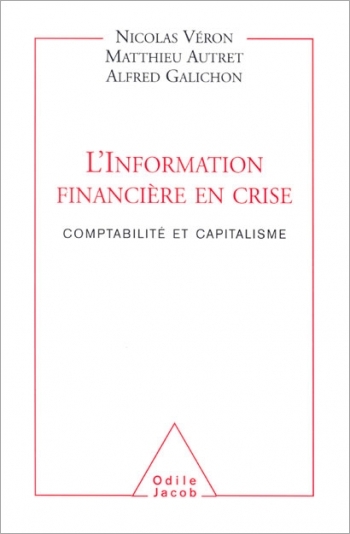
Nicolas Véron, Matthieu Autret, Alfred Galichon
Crise in Financial Information Accounting and Capitalism
Enron, Andersen, Worldcom: although these companies have stopped dominating the headlines, the shock waves they sent through the business community in 2002 have not yet subsided. The belief that accounting is an exact science has been shattered, while economic relations are upset by the knowledge that financial information may be untrustworthy. Yet the market economy profoundly requires relevant and reliable information about the activity and financial situation of businesses. Taking into account the increasing strength of capital markets and international investors, the authors outline the basic elements that could constitute a new, balanced system of accounting that would accompany the necessary changes in capitalism, particularly in France and the rest of Europe. Nicolas Véron, an engineer and high-ranking civil servant, is the founder of Etudes et Conseil pour l'Information Financière (ECIF). Matthieu Autret is an expert currently working for the European Commission. Alfred Galichon is a doctoral candidate in economics at Harvard University.


